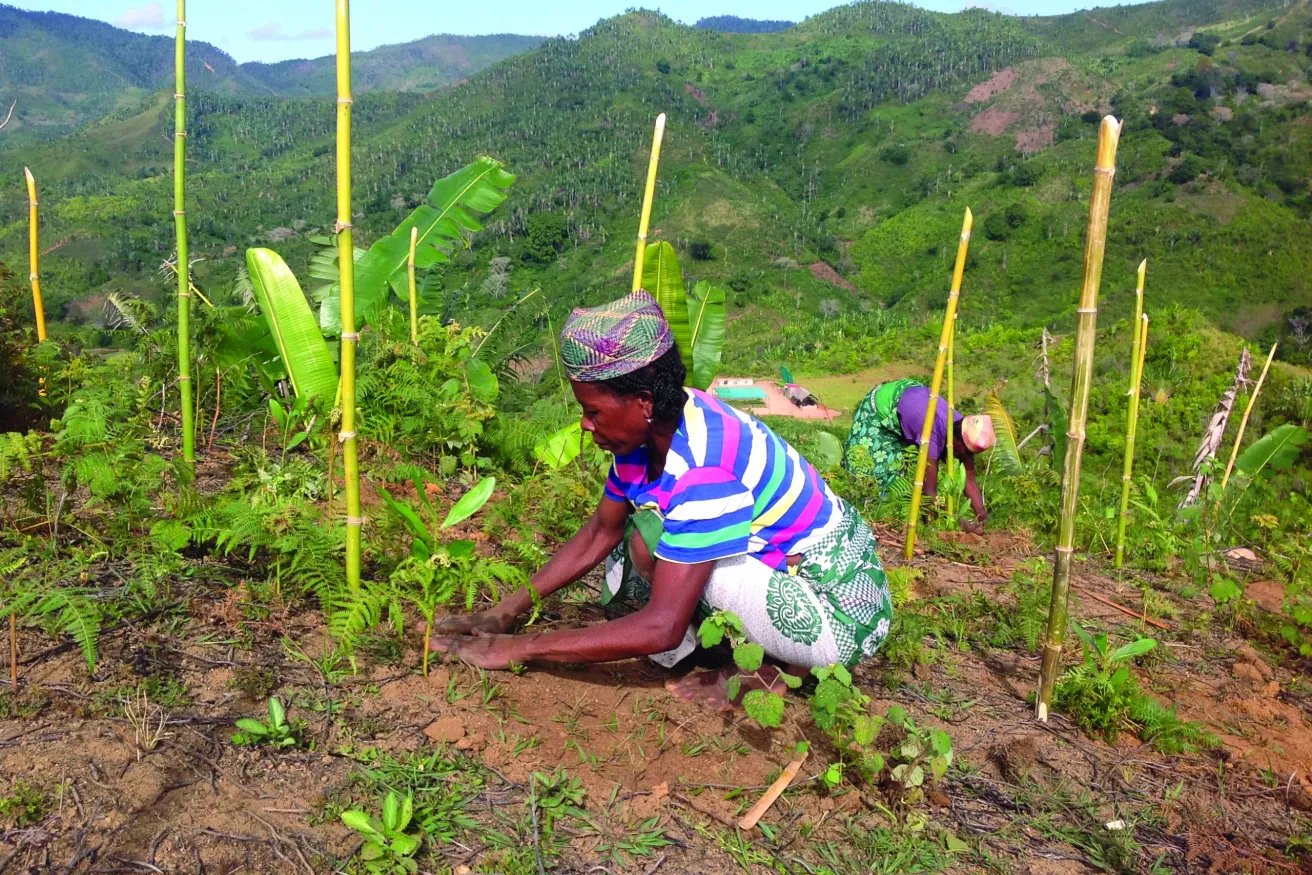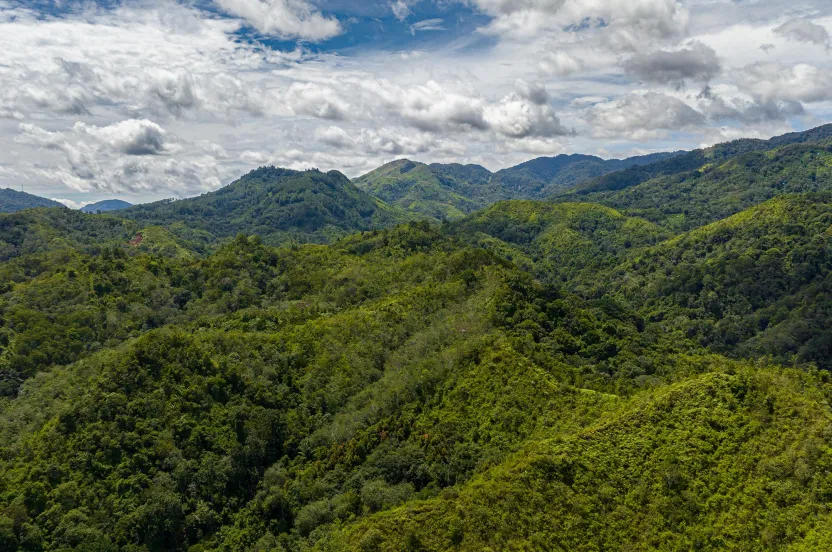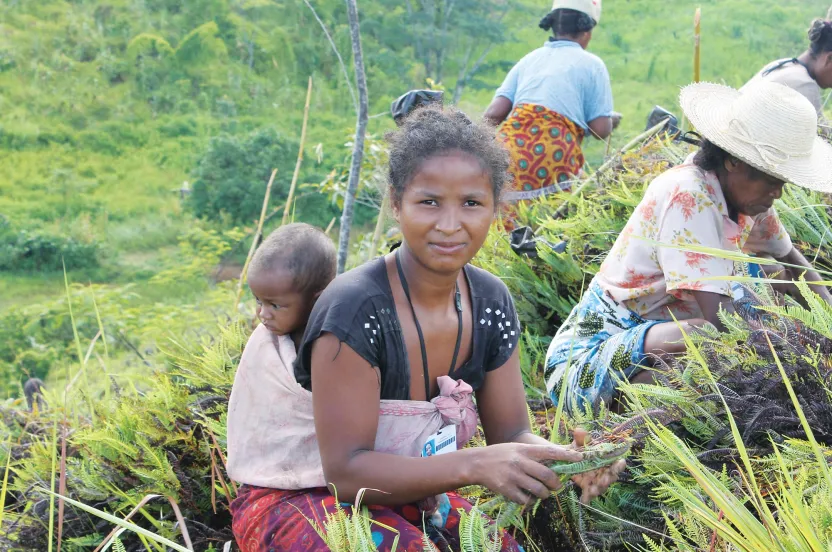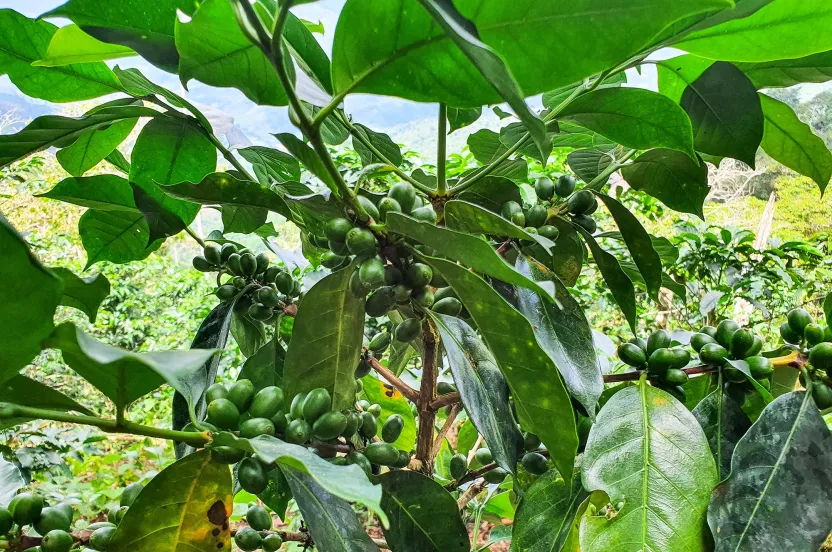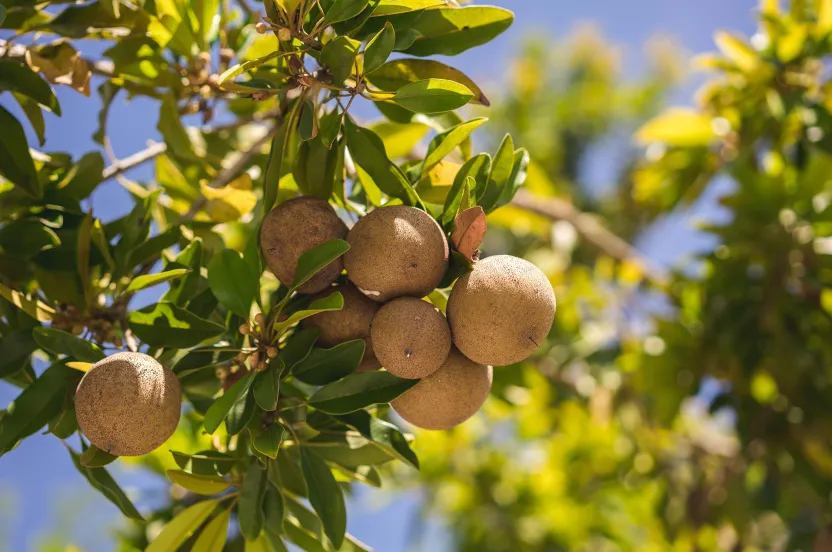Give before midnight on July 31 to double your impact where trees need us most. CHOOSE A PROJECT
Critical work continues in Madagascar with a focus on safety.
Like almost everything else, tree planting has been greatly affected by the COVID-19 pandemic that began sweeping the globe in the early months of 2020. But in the rain forests of Madagascar, endangered lemur populations cannot withstand a pause in the important efforts to protect and expand their habitat. Nor can the people who rely on this work for their livelihood. A path forward had to be found.
Before catching the last flight out of the country on March 19, Dr. Ed Louis and his team quickly sourced the supplies needed to keep the Madagascar Biodiversity Partnership (MBP) operating safely. Preventing the spread of the disease was vital — not only for the tree planters but also for the lemurs themselves, as genome analysis revealed that lemurs are susceptible to the illness.
SAFETY PROTOCOLS IN PLACE
The onsite manager, who has remained quarantined from his family to prevent inadvertent spread, has established a streamlined process for tree planters to follow. Fewer people work each day to ensure appropriate social distancing. Hand-washing stations have been set up, and everyone is provided a clean reusable mask to wear every day. Trees are being planted farther apart to maintain 2 meters between people at all times, and contact between the tree planters is being limited as much as possible.
Even as the country has been loosening its guidelines, the MBP has maintained strict safety regulations to ensure that the work can continue.
FORWARD MOMENTUM
The goal for 2020 was to plant 750,000 trees — a number that would have been easily attained under normal circumstances. But as we all know too well, 2020 was not a year for normal circumstances. While this milestone would not be reached, everyone pulled together to ensure the work continued. As of October, the MBP had planted nearly 500,000 trees on the island.
Important efforts were also focused in the Montagne des Français region of Madagascar, home to the northern sportive lemur, the world’s most endangered primate. Trees in this area are being illegally cut down for charcoal at an alarming rate, and this species of lemur relies on the trees for survival. More police patrols have been assigned to help curb the problem.
THE IMPACT YOU HELPED TO MAKE
Arbor Day Foundation members and donors have ensured that progress was still possible in Madagascar this year. Your support has kept the tree planting — and wages for the workers — going at a time when it is needed most.
